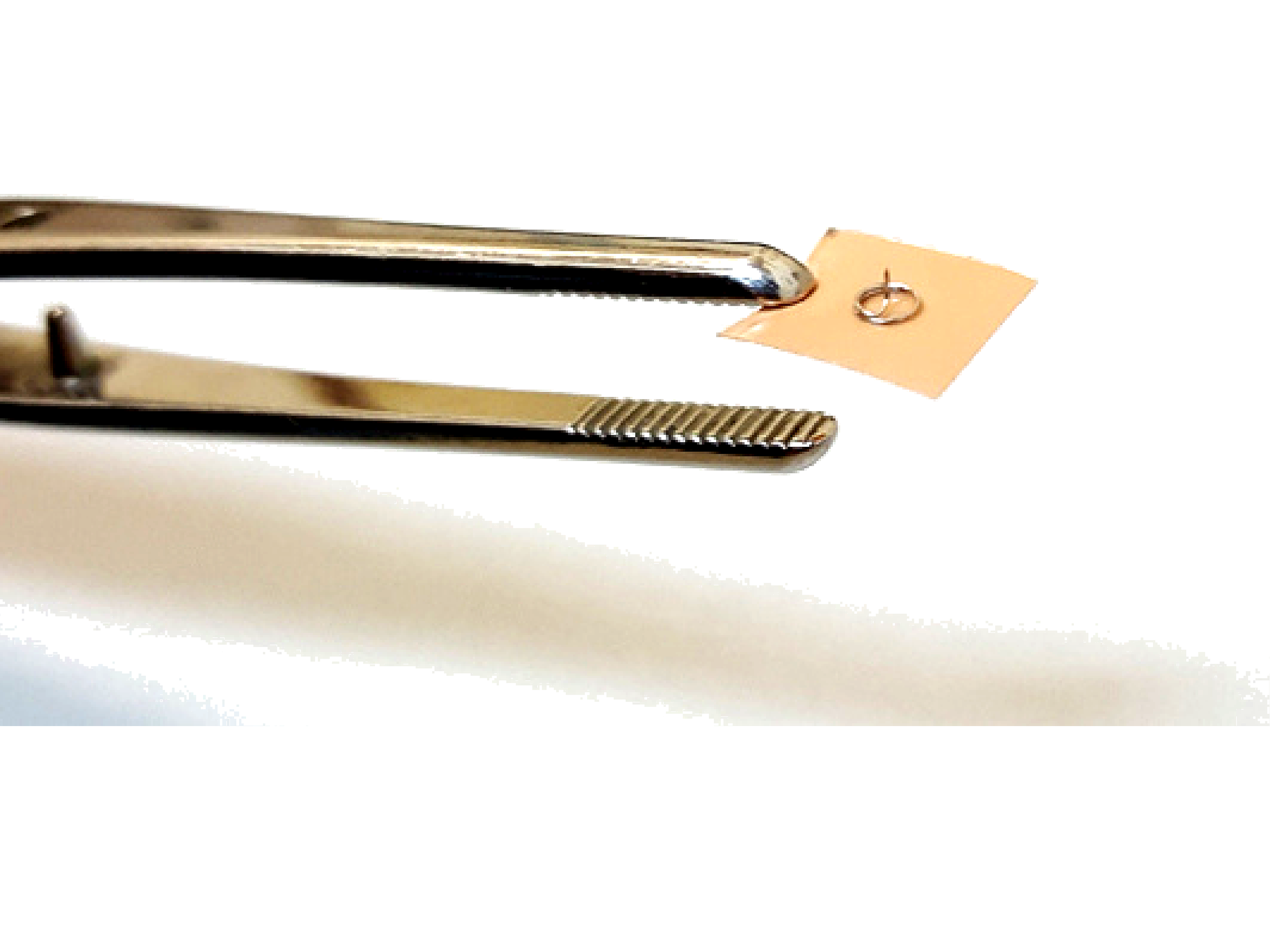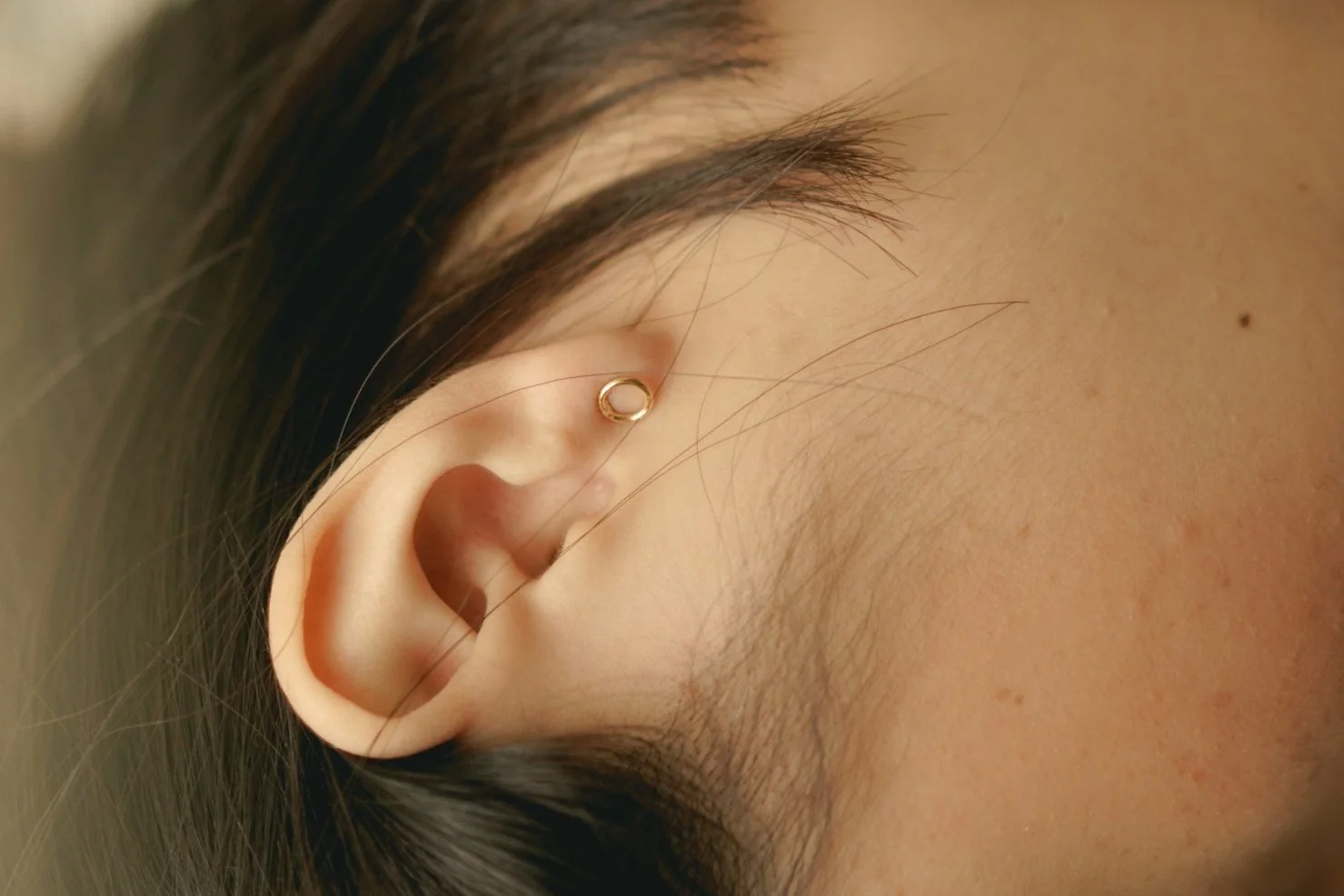
About Auriculotherapy
Auriculotherapy, rooted in Traditional Chinese Medicine (TCM), is a profound healing modality that posits the ear as a complete microsystem of the entire body. By stimulating specific points on the outer ear, it can address a wide array of health conditions.
A pivotal advancement occurred in 1957 when researchers observed that the ear's topography remarkably mirrors an inverted fetus. This discovery revolutionized the field, leading to the highly organized and effective practice known as auricular acupuncture (AA). Notably, the ear boasts the highest concentration of acupuncture points found anywhere on the body.
With a rich history spanning over 2500 years, auricular therapy employs various techniques, including acupuncture and ear seeding, to activate these powerful points.
Auriculotherapy is supported by scientific research and is a strong, effective way to improve overall health.
The ear resembles an upside-down fetus.
FMRI Imaging
With new technology called the FMRI (Functional magnetic resonance imaging) an abundance of studies have been published within the last decade. These studies have shown that acupuncture indices different effects on the human brain as displayed through use of FMRI machines.
FMRI studies show auriculotherapy affects the brain and can be used to:
Decrease pain by Increasing endogenous opioids: (enkephalins and endorphins- Which are stronger than morphine!)
Increasing serotonin- a neurotransmitter responsible for feelings of happiness.
Protect the brain- Has neuroprotective effects :Inhibits neurodegeneration. (Via expression and activation of brain derived neurotrophic factor -BDNF).
Reduce blood flow to the amygdala (fear centre of the brain) and Increase cerebral blood flow.
Reduce blood flow to the prefrontal cortex. (Pain processing, overthinking over analyzing part of the brain).
Increase nitric oxide levels resulting in increased local circulation. (Has vasodilation effects).
Anti inflammatory effects: by decreasing levels of pro inflammatory cytokines In the prefrontal cortex and hippocampus.
Ways To Stimulate Ear Points
-

EAR SEEDS
Ear seeds provide a gentle, needle-free form of auriculotherapy rooted in Traditional Chinese Medicine. They stimulate specific ear points to support physical and emotional health by applying continuous pressure on nerve endings, triggering the brain to release natural endorphins that relax the nervous system and reduce pain. AcuKITS™ use latex-free vaccaria seeds, chosen for their long-standing traditional use in stimulating ear acupuncture points.
AcuKITS™ includes 600 latex-free, sterile seeds for one-time use only and can be worn for up to 5 days maximum.
-

PRESS TACKS
Press tacks deliver a significantly stronger stimulation compared to standard ear seeds, making them a preferred choice for those seeking more intense and focused acupressure benefits. They are designed to ensure a deeper engagement with the auricular points, thereby enhancing the overall effectiveness of the treatment.
AcuKITS™ uses latex-free, stainless steel, sterile press tacks for one-time use only and can be worn for up to 3 days maximum. Must be purchased separately.
The Science
The ear is an exceptionally complex organ, distinguished by its diverse embryological origins. It develops from all primary germ layers of the embryo—neural crest, mesoderm, endoderm, and ectoderm—making it a unique representation of the body's entire tissue spectrum.
This intricate development results in a structure rich in small bones, cartilage, muscles, nerves, blood vessels, and membranes. Our understanding of treatment modalities like auriculotherapy is fundamentally rooted in this complex developmental process and the ear's remarkably dense nerve supply. It is this comprehensive integration of embryonic tissues and extensive innervation that underpins the ear's exceptional capacity to act as a microsystem for the entire human body.
Research has meticulously mapped the ear's innervation, revealing contributions from several cranial nerves, including the Trigeminal (V), Facial (VII), Glossopharyngeal (IX), and particularly the Vagus (X) nerve via its auricular branch. Furthermore, cervical spinal nerves, such as the great auricular nerve (C2, C3), also contribute significantly to this network. This rich neural tapestry provides direct communication pathways to the central nervous system and, consequently, to various parts of the body.
The scientific understanding of auriculotherapy is deeply rooted in this anatomical and neurological foundation. The discovery in 1957 by Dr. Paul Nogier that the ear's topography resembles an inverted fetus was a monumental step, providing a systematic map for auricular acupuncture points. Subsequent research has focused on validating this somatotopic representation. For instance, neuroimaging studies, including functional magnetic resonance imaging (fMRI), have demonstrated that stimulating specific points on the ear can elicit corresponding activations in brain regions associated with the target body parts or functions, providing objective evidence for the ear's role as a microsystem.
Further research explores the mechanisms by which auriculotherapy exerts its effects. The prominent role of the auricular branch of the vagus nerve, for example, has led to significant interest in auricular vagus nerve stimulation (aVNS) as a non-invasive therapeutic approach for conditions ranging from epilepsy and depression to pain management. Studies in these areas aim to elucidate the precise neural pathways and neurochemical changes involved. This ongoing research continues to refine our knowledge of the ear's complex structure and its profound therapeutic potential, reinforcing why its unique development and extensive innervation make it such a powerful conduit for healing.
The WHO Supports Auriculotherapy
In the 1990s, international standards for auricular therapy were created with help from the World Health Organization (WHO). Recently, Auricular Acupuncture Points (AAPs) were recognized as a model for how the brain is organized. This understanding came from studying the connections between ear zones and their brain counterparts. The WHO supports auriculotherapy by:
Standardizing names, points, and locations for auricular therapy after collaborating with doctors from Asia, Europe, and America in 1990.
Promoting a consistent naming system for auricular acupuncture to enhance research, teaching, and practice.
Recognizing auriculotherapy as a valid part of clinical care.
Research Studies
History Of Auriculotherapy
23 Symptom Cards
AcuKITS™ provides 23 symptom cards to help ease symptoms and improve the well-being of people undergoing cancer treatment or managing chronic conditions.
Stress & Anxiety
Depression
Nausea & Vomiting
Loss of Appetite
Insomnia
Bladder/ Urinary issues
Cognitive Impairment
Immune Suppression
Fatigue
Taste Alterations
Diarrhea
Skin Conditions
Constipation
Dizziness & Vertigo
Bone & Joint Health
Liver Health
Headache & Migraine
Hot Flashes
Mouth Sores
Vision Issues
Neuropathy
Pain
Hair Loss
Easy To Use: Empowering Caregivers
AcuKITS™ are thoughtfully designed to provide convenient and accessible support, empowering caregivers to confidently integrate effective auriculotherapy and acupressure techniques into their routine. Specifically developed for individuals supporting loved ones through the challenges of a cancer diagnosis or chronic illness, these kits offer straightforward tools that are both easy to use and simple to apply. With AcuKITS™, caregivers can provide gentle, beneficial support with remarkable ease.
Your health is in your hands
Empower yourself to take control of your health with AcuKITS® – convenient at-home kits rooted in Traditional Chinese Medicine and backed by science. These kits harness the power of both auriculotherapy and acupressure techniques, specifically designed to assist with health challenges related to cancer treatment and chronic illness.















